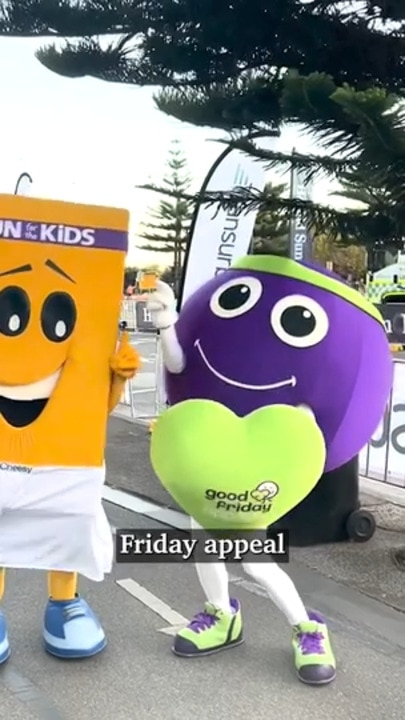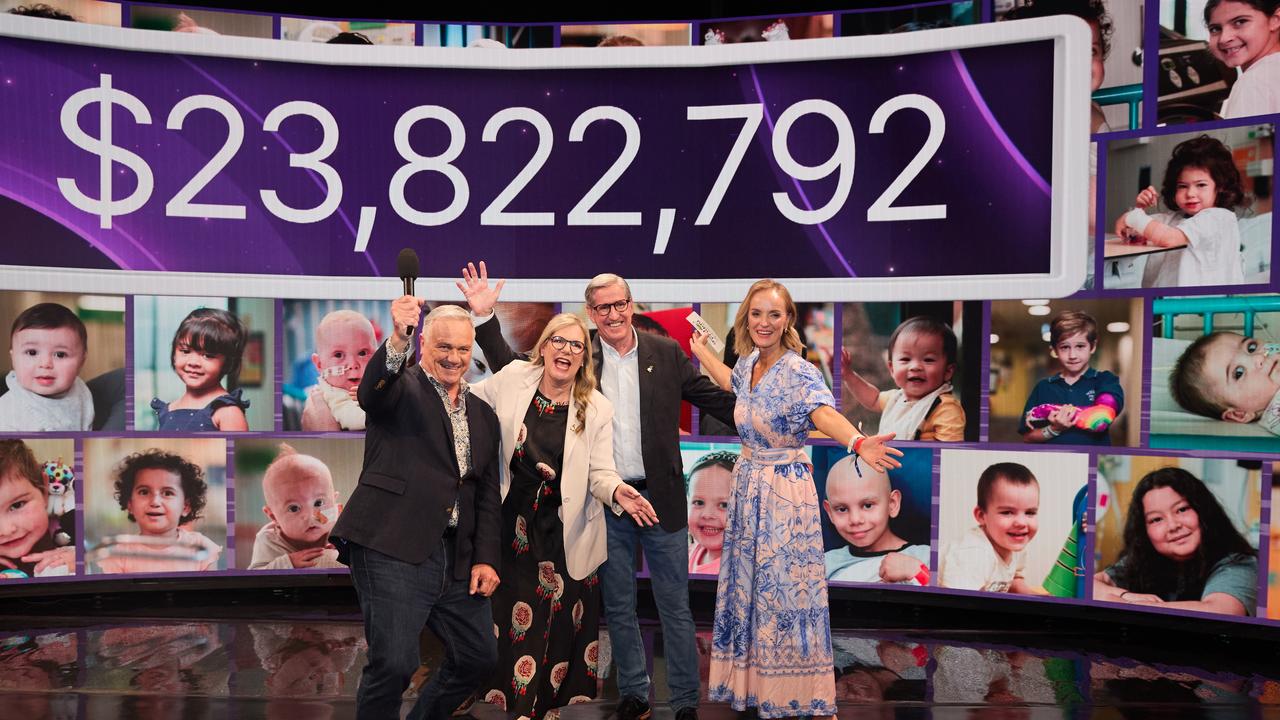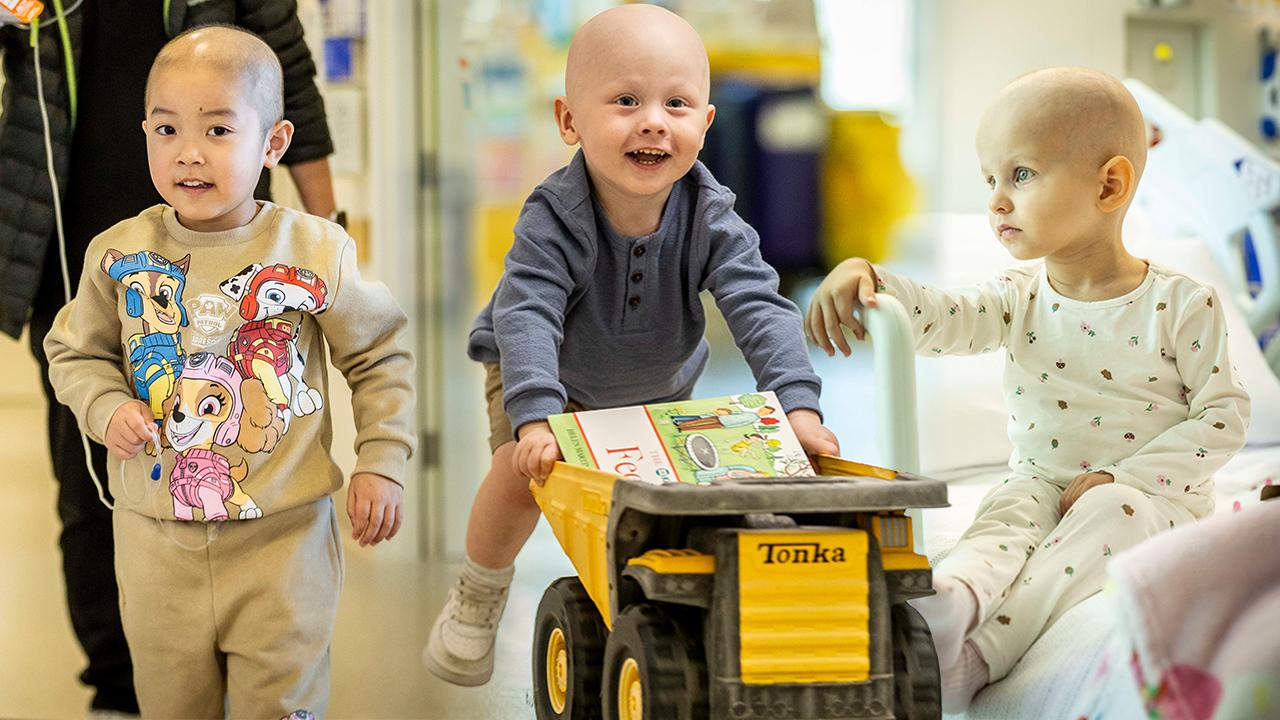Good Friday Appeal 2025: Liana has not let a horrific hand injury stop her from achieving all her dreams
Sports-mad teenager Liana is refusing to let a horror hand injury slow her down, and after undergoing 20 surgeries at the Royal Children’s Hospital she is now aiming to make the Australian Paralympic ski team.

Reconstructive surgeon Will Alexander knows what real damage looks like. “We see the worst of the worst,” Dr Alexander said.
Liana, 15, crushed her hand in a motor vehicle accident, and suffered partial amputation of her left hand, as well as multiple fractures.
“She came in with only the thumb still attached and viable, and the rest of her fingers were cold and didn’t have any blood flow in them. There was missing skin, bone, tendons, nerves and arteries,” Dr Alexander said.
“It was one of the worst hand injuries I’ve ever seen.”
Dr Alexander, a specialist in hand and microsurgery, treated Liana at the Royal Children’s Hospital.

The first surgery was complicated. “We cleaned the hand, and had to get some blood flow back into the fingers. We ran vein grafts from her wrists, then bridged the gap between each finger individually, and got the fingers back alive, and flowing,” Dr Alexander said.
Liana had 20 surgeries to save her hand.
The treatment also included regular cleaning “mud, gunk and grass” from the limb, and skin transplants to resurface the back of Liana’s hand.
Dr Alexander said Liana slowly regained function to her thumb and four fingers, but sadly lost her index finger due to infection.
“It’s taken a lot of surgeries to get it all back together. She’s got all the components to have a good hand,” Dr Alexander said.
“The next step is to take what is, in our minds, a good aesthetic hand – a thumb and some fingers – and make it more functional for her in the real world.”

Liana, a vivacious sports-loving teenager, is turning her battle from adversity into an inspirational journey.
She plays netball, competes in dragon boating events, and is an avid skier.
Liana is also on the long list for the Australian Paralympic Ski Team for the 2026 Winter Games in Italy.
She trains with the Falls Creek Race Club, and is involved in the Australian Institute of Sport green-to-gold youth development program.

“My message is, even if it seems like the darkest time, it’s not forever,” she said. “Once you get to the other side, you can do anything. My injury hasn’t stopped me from doing anything in my life. I’ll never give up. I can do anything. ”
Liana said her pathway to the Paralympics has boosted her determination to live her best life.
“I feel so grateful and empowered,” she said.
Dr Alexander said: “Liana has been so mature and brave. She asked hard questions like, whether it’s all worth it, or whether we should chop fingers off if it went wrong.

“She was very open about it all. She was smart enough to understand the nuance behind everything. I think that helped.”
He said RCH resources, teams and therapists contributed to Liana’s journey.
“We were very lucky to have the resources, theatre space, doctors and nurses to get a kid back to surgery that many times,” Dr Alexander said. “The RCH is amazing.
Tennis ace bounces back after unthinkable
Kale is on track to becoming a national-level tennis ace.
The 16-year-old is in the Tennis Australia National Development Team For Autism.
“I’ve played tennis since I was two,” he said. “I always had a connection with it.”
However, earlier this year, on his first day as a Year 12 student, the unthinkable happened. Kale suffered shocking injuries during a school sports activity and was admitted to the Royal Children’s Hospital for urgent care.
Dr Michael B. Johnson, head of orthopaedics at the RCH, said Kale presented to hospital with an “evolving spinal cord injury”, adding: “The pressure on the spinal cord got progressively worse.”
Kale was paralysed from the waist down.

Dr Johnson, and teams at the RCH, performed two major surgeries; the first operation was in a tricky spot on Kale’s spine.
“It wasn’t easily accessible,” Dr Johnson said. “You’ve got lots of things in the way, including vessels of the big aorta and major vessels to the neck.”
So, with the assistance of cardiac surgeons, the team went in, split Kale’s sternum, and approached the spine from the front. “We removed the damaged vertebrae … so it took pressure off the spinal cord,” Dr Johnson said.
The second operation involved inserting rods and screws to stabilise Kale’s spine. So far, Kale has been at the RCH for 12 weeks for treatment, rehabilitation and recovery.
He is progressing well.

Kale said a “sports mentality” kept him motivated.
“I keep telling myself: ‘This isn’t going to be forever. I’m going to get out of here. I’m going to play tennis again’,” he said. “Keeping a strong mindset, and having a goal – which is to get home – helps me push through.”
Dr Johnson said: “Kale was scared by this experience, as you would well understand. But I am very confident we’ll see him walking again for sure. We will support him as much as we can”.

Kale, a young Gunaikurnai man, said he was grateful to RCH clinicians and therapists, and also the hospital’s Wadja health clinic for Aboriginal and Torres Strait Islander children.
The clinic provides medical, social, cultural and emotional assessment. An Aboriginal family health worker also provides support.
Wadja clinic manager Selena White said the team aimed to build “deeper trust, connection, and understanding with our patients and families”.
“It’s a safe space,” Kale said. “It helped me fit in.”
Trio of angels know to expect the unexpected
Royal Children’s Hospital volunteers Eliza, Ruby and Linda know to expect the unexpected.
“No two shifts are the same,” Linda said. “You never know what might happen.”
The trio, who have all volunteered at the RCH for three years, work in the wards.
“We spend a lot of time floating in different wards, and going wherever we’re needed,” Eliza said.
“One shift, you might sit with a child and read. Another shift, you might make cups of tea for parents.”

Linda added: “If you can complete a shift thinking you’ve made a difference, or helped someone, even in a small way, that’s very rewarding.”
And the unexpected? Ruby planned a wedding for the parents of an RCH patient once.
“I helped set up the wedding in the morning, and it happened on the grass (in the RCH’s Great Garden Court) in the afternoon,” she said. “The wedding was fantastic. I cried.”
The shifts together led to a friendship outside of work.
“We have a lot of things in common, but we also have a lot to learn from each other,” Eliza said.
Their volunteer work will extend to helping out at the Good Friday Appeal.
Ruby said: “The Good Friday Appeal is quintessential Melbourne and it’s for a place that’s close to our hearts.”



